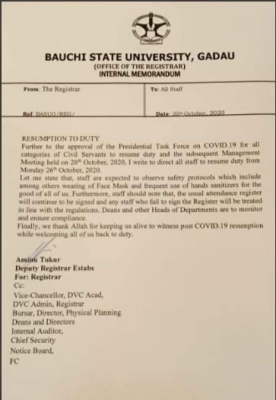
People have been moving from their places of origin to various settlements from the beginning of time, establishing there, and assimilating into the community. Many people move to other jurisdictions in the globalized world we now inhabit and become citizens of the nations where they have made their homes. Sometimes they travel to another nation purely for the purpose of giving birth so that their children might become citizens of that nation.
A person who has citizenship has full, legally recognized membership in a state and owes that state their complete allegiance. An individual who is officially awarded citizenship by a state is able to take advantage of the rights and obligations that come with that position. By granting this privilege, the state or a local jurisdiction recognizes the individual as a citizen or as belonging to the state in accordance with its custom or legal system. Common misunderstandings regarding citizenship are dispelled in the definition. It only means that a person is only regarded as a citizen of a nation if its legal system or cultural norms do so. Most people today believe that in order to be a citizen of a country, a person must be born there or to parents who were citizens of that country. It is clear from the concept of citizenship, nevertheless, that citizenship encompasses much more. Only the rights and responsibilities that come with citizenship are available to such a person.
There are just three (3) choices for citizenship. The ability to immigrate to Nigeria and other nations is made feasible by the fact that citizenship cannot be obtained just via birth. Without the other types of citizenship, it would not have been feasible for immigrants who are referred to as citizens in Nigeria and other countries.
The choice to relocate and obtain citizenship in another nation is frequently made for a variety of very specific factors. These include items like the freedom to travel, work for the government, and not be deported, as well as the right to vote. These and other aspects highlight how important citizenship is to many individuals, as it affects their quality of life and political participation.
The remainder of this article looks at the type pf citizenship, requirements and how to apply for Nigerian citizenship.
Types of Citizenship
Although the idea of citizenship has existed for thousands of years, the term citizenship has evolved to redefine what it means to be a citizen of a nation or perhaps the entire planet. The country of one’s birth is no longer a prerequisite for citizenship, yet citizenship still refers to a person’s status legally within a state.
Throughout history, political upheavals and the accompanying conditions, such as those brought on by decolonization, the Second World War, or the fall of the Berlin Wall, have prompted changes in citizenship. Now that international migration is being documented at continually growing levels, there are more alternatives for obtaining citizenship. When feasible, some individuals even acquired dual citizenship in more than one country.
The sections that follow discuss the routes one can take to become a citizen, including those made possible by birth, inheritance, and other ways.
1. Family Citizenship
This phrase describes a person whose father, grandparent, or other member of their family is a citizen of a state that is different than the country they were born in. Several countries, including France, have different requirements for this kind of citizenship, particularly in terms of whether or not an individual can apply for citizenship in the nation of their mother. This citizenship is offered free of charge by Greece, Italy, Japan, Romania, Thailand, and Turkey.
2. Citizenship by Birth
A person is regarded as having the legal status of a citizen if they are born into a family of citizens or on the territory of a state. This is how most people become citizens, frequently immediately and unconditionally at birth.
This expression means that a person who was born in a country is granted citizenship. This isn’t always the case, though; in some nations, a specific law known as lex soli may put limits on people. These include countries like Australia, Egypt, New Zealand, and South Africa, to name a few.
According to right to soil laws that were first created in the United Kingdom, citizens of the nation are regarded as “subjects of the Monarch.” In the US, this is referred to as birthright citizenship. Contrary to popular belief, fewer than 30 nations worldwide, including a sizable number of Caribbean islands like Dominica, Jamaica, and St. Kitts & Nevis, now grant citizenship for this reason.
3. Citizenship by Naturalization
Naturalization is another common route to citizenship; it normally applies to those who entered the country lawfully (for example, through political asylum) or who have been residents for the stipulated period of time. It is typical for persons who are applying to become citizens to take a test to demonstrate their understanding of the laws, cultures, practices, and language of the nation. The previous citizenship of new citizens in countries without dual citizenship must likewise be renounced. For example, Indonesia requires dual nationals to relinquish one of their citizenships by the time they turn 18 years old.
4. Citizenship by Marriage
Naturalization through marriage to a person who already has citizenship has grown in popularity since its introduction in the decades after World War II. Different nations have different minimum marriage requirements, and some additionally grant spouses in civil unions the same citizenship rights.
5. Economic Citizenship (Citizenship by Investment)
Finally, for those who are unable to get citizenship through more traditional means, citizenship by investment may be a possibility. Programs for obtaining citizenship via investment (CBI) give investors the opportunity to do so by significantly boosting a country’s economy.
The capacity to transmit citizenship down to future generations is one of the benefits of dual citizenship, along with the chance for commercial prospects, global mobility, and the freedom to travel to a variety of countries. The most favorable aspects of second citizenship, however, are security and safety because many people and their families may worry about political unrest in their country of birth. The CBI programs allow them to safely travel to the nation of their choice.
How to Apply For Nigerian Citizenship
The Federal Republic of Nigeria’s 1999 modified Constitution (the “CFRN” or “Constitution”) lists three ways to become a citizen of Nigeria: birth, registration, and naturalization. In order to be eligible for Nigerian citizenship through any of these routes, applicants must check off a number of boxes in the Constitution. However, the procedure and documentation requirements are further detailed in the Citizenship Requirements Handbook, published by the Federal Ministry of Interior’s Citizenship and Business Department.
Only people who are citizens of another nation by birth are permitted to earn Nigerian citizenship through registration or naturalization, as stated in section 28 (2) of the Constitution. If the individual is not a citizen of the other country by birth, the certificate of registration or naturalization will not be issued until the person has effectively renounced their citizenship or nationality within five months of the date of the registration or certificate of naturalization.
The Nigerian constitution only authorizes and acknowledges three types of citizenship, despite the fact that other types of citizenship are recognized and accepted by nations all over the world. Other internationally recognized and acceptable citizenship options include citizenship via investment and citizenship through marriage. We will concentrate on the three types of citizenship that Nigeria accepts in this section.
Citizenship by Birth – Requirements and How To Apply
Everyone in the world agrees that this type of citizenship is the most common. This kind of citizenship is generally self-explanatory since it relates to people who were born in Nigeria to parents who were originally from Nigeria. However, there are numerous specifics relating to citizens by birth. For these details, the Nigerian constitution has provisions.
The Nigerian constitution mentions citizenship by birth and provides the following additional information:
- Both those born in Nigeria before and after the nation’s independence declaration.
- People whose parents, grandparents, or other close relatives are indigenous Nigerians. Indigenous Nigerian communities refer to the various tribes that make up Nigeria. This means that the parents or grandparents of such persons come from at least one of the Nigerian tribes, such as the Yoruba, Igbo, Hausa, Fulani, Kalabari, Nupe, Itsekiri, and so on.
- You can be or can become a citizen of Nigeria by birth regardless of where you were born if your parents or grandparents were or are citizens of Nigeria.
Citizenship by Registration – Requirements and How To Apply
A person can register to become a citizen of Nigeria in the same way that they would join an organization. This is only feasible if those individuals, who are mainly immigrants, show the Nigerian government that they are dependable and valuable.
To register as a Nigerian citizen, one must, however, fulfill a number of conditions and standards established in the Nigerian constitution. It should be obvious that if these requirements are not completed, a repeat would occur—the inability to get the desired citizenship. The following requirements must be met by Nigerian citizens in accordance with the constitution.
- The person is morally upright (This statement should be testified by two people, and one of them should be a religious minister).
- By expressing and acting on this desire, this guy makes it clear that he wishes to reside in Nigeria.
- A woman who is currently married to a Nigerian national or has previously been married to one has taken an oath of allegiance to that country. Also included are people who descend from one of the original tribes of Nigeria.
Citizenship Requirements By Registration For Women Married To Nigerian Citizens (Niger- Wives)
- Receipt for the application fee payment.
- 24 photos from a passport.
- Appropriately filled out the application and information form.
- Evidence of a source of income.
- Evidence of a source of income.
- Birth certificate if born in Nigeria, residence permit, and marriage certificate.
- Data Page and the First 5 Pages of an International Passport.
- Data Page and the First 5 Pages of an International Passport.
- letter of approval from the spouse, children, or relatives in the case of a deceased spouse.
- specific to prior marriage(s) (where applicable).
- In the case of a deceased husband, citizenship documentation (a state or local government certificate of origin or a naturalization certificate).
- In the case of a deceased husband, citizenship documentation (a state or local government certificate of origin or a naturalization certificate).
- letter from two or more referees, curriculum vitae, and ID card (driver’s license, passport, or other national identification card) of the guarantors.
- Requirements For Citizenship By Registration For People Who Were Born In Nigeria At Full Age And Capacity Whose Grandparents, As Provided For In The Handbook On Citizenship Division, Are Citizens Of Nigeria –
- Picture in a passport the applicant’s birth certificate.
- where necessary, a marriage certificate and a residency permit.
- the data page is on the first five pages of an international passport.
- Please upload proof of your parents’, grandparents’, or great-grandparents’ Nigerian citizenship.
- A letter from at least two referees, along with two passport-sized photos, a curriculum vitae, and an ID card (a driver’s license, an international passport, or a national ID card), is required.
Citizenship by Naturalization – Requirements and How To Apply
This procedure is usually one of the most challenging ways to become a citizen of any nation. Usually, this is a result of the stringent restrictions that various countries impose on immigration. People usually turn to this kind of citizenship as a last resort if they are unable to get citizenship through the earlier techniques mentioned in this article. According to the Nigerian constitution, in order to be granted citizenship by naturalization, individuals or immigrants must meet the requirements listed below:
- This individual is of legal age.
- This individual has good morals (just like in the type before).
- This person has made it known that he or she wants to live in the nation.
- The community’s intention to assimilate the applicant for citizenship must be confirmed by the governor of the state where the applicant intends to dwell.
- Prior to the application date, the person had been a resident of Nigeria for fifteen years.
A person’s citizenship may also be revoked for proved treachery if they are imprisoned within three to seven years of obtaining it through naturalization or registration.
In summary, the Nigerian Constitution expressly provides for anyone who wish to become citizens of Nigeria by following a clear procedure. Nigerian citizenship is much easier to obtain than citizenship in other countries, where there are far tougher standards, more complicated procedures, and higher financial outlays. However, it should be emphasized that the Constitution prevents Nigerians who become citizens through registration or naturalization from holding citizenship in any nation other than their own.
Not to mention, the Ministry of Interior still has the monumental burden of improving the clarity and directness of the citizenship application processes. Guidelines and updates should be regularly released to ensure that everyone is aware of the costs, steps, and requirements. As of now, the truth has been that the current standards are less practical and are more complicated and technical than written instructions; this shouldn’t be the case. We advise using an efficient automated application, processing, payment, and approval procedure to promote simplicity and transparency.


